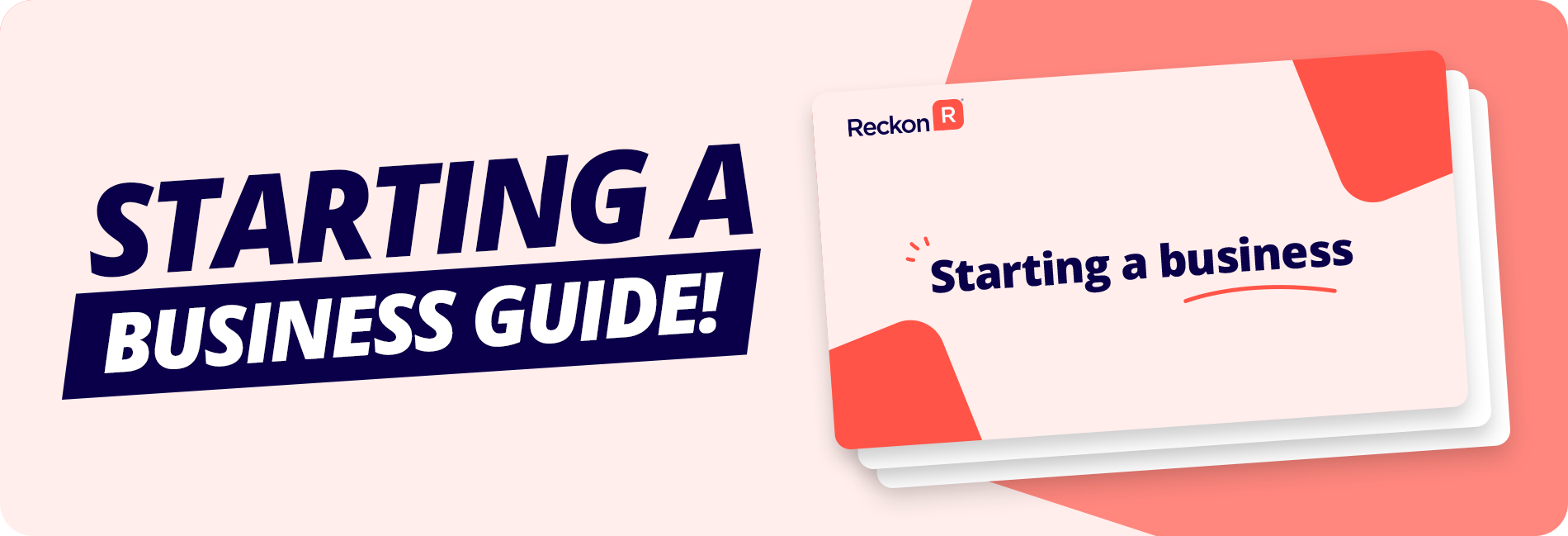TABLE OF CONTENTS
- Breaking down the basics of an online business
- Develop your online business idea
- Conduct market research
- Choosing your ecommerce platform and business model
- Creating your business plan
- Building your ecommerce website
- Marketing your online business
- Legalities around starting an online business
- Managing finances and operations
- Launching your business and ongoing growth
- Scaling your online business
Starting an online business in Australia can be such an exciting adventure – one that will hopefully lead you to financial freedom and professional satisfaction. With a global shift towards the digital, more Australians than ever are exploring the opportunities of running their own business online. So let’s tick off all the boxes involved in turning your online business idea into a profitable reality.
Breaking down the basics of an online business
When starting an online business, you’re essentially setting up a commercial venture on the internet to sell products or services to potential customers. Online businesses come in all shapes and sizes, ranging from an ecommerce site selling physical products or digital downloads, to shops providing online services like consulting or web development. The best online business ideas make the most of technology to reach broad audiences and scale up quickly.
Unlike traditional brick-and-mortar businesses, starting an online business usually demands less upfront investment and gives you much more flexibility. But succeeding online also relies on careful planning and some savvy marketing strategies.
Develop your online business idea
A great idea is undoubtedly the cornerstone of your new business. Maybe you’re selling products or offering particular services – whatever the case, your online business idea should solve a genuine problem or meet a clear demand from the market. Ask yourself a few questions to figure out whether this idea is ‘it’:
- What problems can my business solve?
- What am I passionate about that lines up with the market’s current needs?
- Are there any gaps in the market I can fill with specific products or services?
Conduct market research
Thorough market research is easy to overlook in those heady early days, but it’s the best way to validate your business idea and truly understand your target market. Good market research is all about gathering data on various demographics and identifying the preferences and buying behaviours of your potential customers. You should also jump on social media platforms and research competitor ecommerce websites to get greater insights into current market trends.
Here are some quick and easy market-research tips:
- Evaluate your main competitors’ strengths and weaknesses by looking at their social media accounts and product offerings.
- Analyse trends on Google Trends and use SEO tools like Ahrefs or Semrush to figure out the demand for your products or services.
- Run surveys or interviews with potential customers to better understand their wants and needs.
Choosing your ecommerce platform and business model
Your chosen platform should support your business model, whether it’s selling products directly, dropshipping, or connecting you with customers for your services online:
- Dropshipping: A low-risk model where products are shipped directly from suppliers to customers. Great if you don’t want to invest much upfront.
- Selling your own products: Manufacturing or sourcing products yourself to sell directly through an online store.
- Affiliate marketing: Promoting other businesses’ products and earning commissions on referrals.
Some of the most popular platforms include Shopify, WooCommerce, BigCommerce and Magento, but there are lots more out there. Each one has relatively different features, so take your time researching and choose one that will work with your technical abilities and budget. Also check that it will be able to scale with you.
Creating your business plan
Your business plan is your roadmap for the future. You need to make sure it outlines how your business will operate, market itself, manage finances, and more. Your business plan should also explicitly define your target market, your marketing strategy, financial projections and operations.
Some of the core elements of your business plan should include:
- An executive summary.
- Market analysis.
- Description of your products or services.
- Marketing and sales strategies.
- Financial projections and funding requirements.
In short: your business plan should not only guide your strategy but also be what you use when seeking external funding from banks or investors.
Building your ecommerce website
Your professional, user-friendly business website should showcase your products or services straight away, be easy to navigate, and have the resources to facilitate secure transactions. Make sure it’s optimised for mobile devices, as most online shoppers prefer browsing from their phones or tablets these days.
Also think about investing in professional web-development services – especially if you don’t have the technical expertise to do it yourself. Alternatively, platforms like Shopify and Wix have simple tools for building your own ecommerce website with very little technical skills needed.
Top things to remember when building your website:
- Professional and engaging design are a must.
- Write compelling product descriptions and use high-quality images.
- Time-poor shoppers want a fast, secure checkout process.
- Don’t forget about search engine optimisation (SEO).
Marketing your online business

Online businesses rely heavily on digital marketing to drive new traffic and convert cold leads into sales. Your online marketing strategy should include things like:
- SEO: Optimising your website content and structure to rank highly on search engines, which increases your organic visibility.
- Paid advertising: Investing in targeted advertisements on Google, Facebook, Instagram, TikTok and other platforms to boost traffic and brand awareness.
- Social media marketing: Building an active presence on social platforms (e.g. Instagram, Facebook, LinkedIn, TikTok) to directly engage with potential customers.
- Email marketing: Growing an email subscriber list and sending them regular updates and promotions to help generate more sales for what you sell online.
- Content marketing: Creating valuable content (e.g. blogs, videos, tutorials) to attract and retain your target audience.
When you use some or all of these marketing channels, it can result in a huge boost to your brand visibility and help your online business find success – even among a sea of more established competitors.
Legalities around starting an online business
While starting an online business usually involves far fewer things like permits and licences than opening a physical business, there are some legal requirements that will probably need to be addressed:
- Register your business name and get an Australian Business Number (ABN).
- Decide on a suitable legal structure (sole trader, partnership, company).
- Read about how your business needs to comply with Australian consumer law and online privacy rules.
- Get to grips with your tax obligations, including the Goods and Services Tax (GST).
If it all sounds too much? Make sure you seek out professional advice from an accountant or legal expert, as they’ll be able to keep you on track throughout the process.
Managing finances and operations
It’s a good idea to invest in some reliable accounting software – like Reckon – to track your sales, expenses and profits, and also to set up secure payment processing systems (e.g. PayPal, Stripe, integrated ecommerce solutions provided by your ecommerce platform).
Keeping your operations running smoothly is just as important. Make sure you lay out your processes for inventory management explicitly, and take care of all the instructions around order fulfilment, customer service, returns, etc. Making sure these parts of your business are done well early on will help you retain high customer satisfaction and support your business’s scalability going forward.
Launching your business and ongoing growth
Once your website is live and operational processes are set, it’s time to launch your online business! Announce your launch through your social media channels and email marketing campaigns, as well as paid advertising (if you have the budget for it).
Keep tabs on your performance by using the analytics tools provided by your ecommerce platform, or Google Analytics and other social media insights. Use that information to then refine your strategies and hopefully improve and grow.
Scaling your online business
As your business gains momentum, look for opportunities to scale up. Think about adding new product lines, expanding into new markets, spreading your digital presence through influencer collaborations, or use other marketing techniques that you’ve seen work.
Scaling does rely on smart financial management, so be a strategic planner and be willing to adapt to market demands and customer feedback.
Starting an online store in Australia is not only an achievable and potentially rewarding venture for making money online, but you can use it as a jumping-off point for a successful and sustainable career. Stay adaptable and customer-focused to find the greatest success in the ever-changing world of digital sales.












































